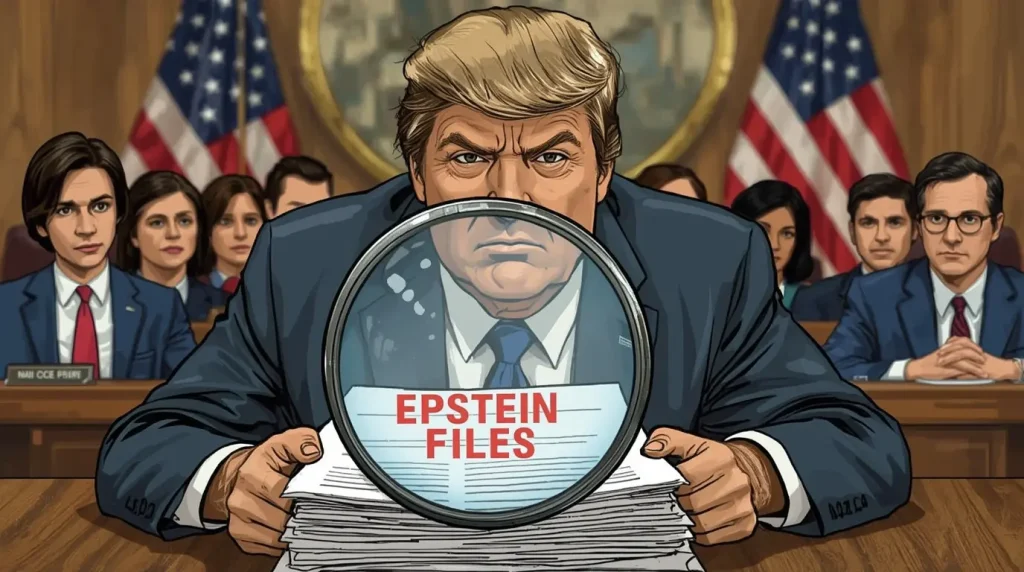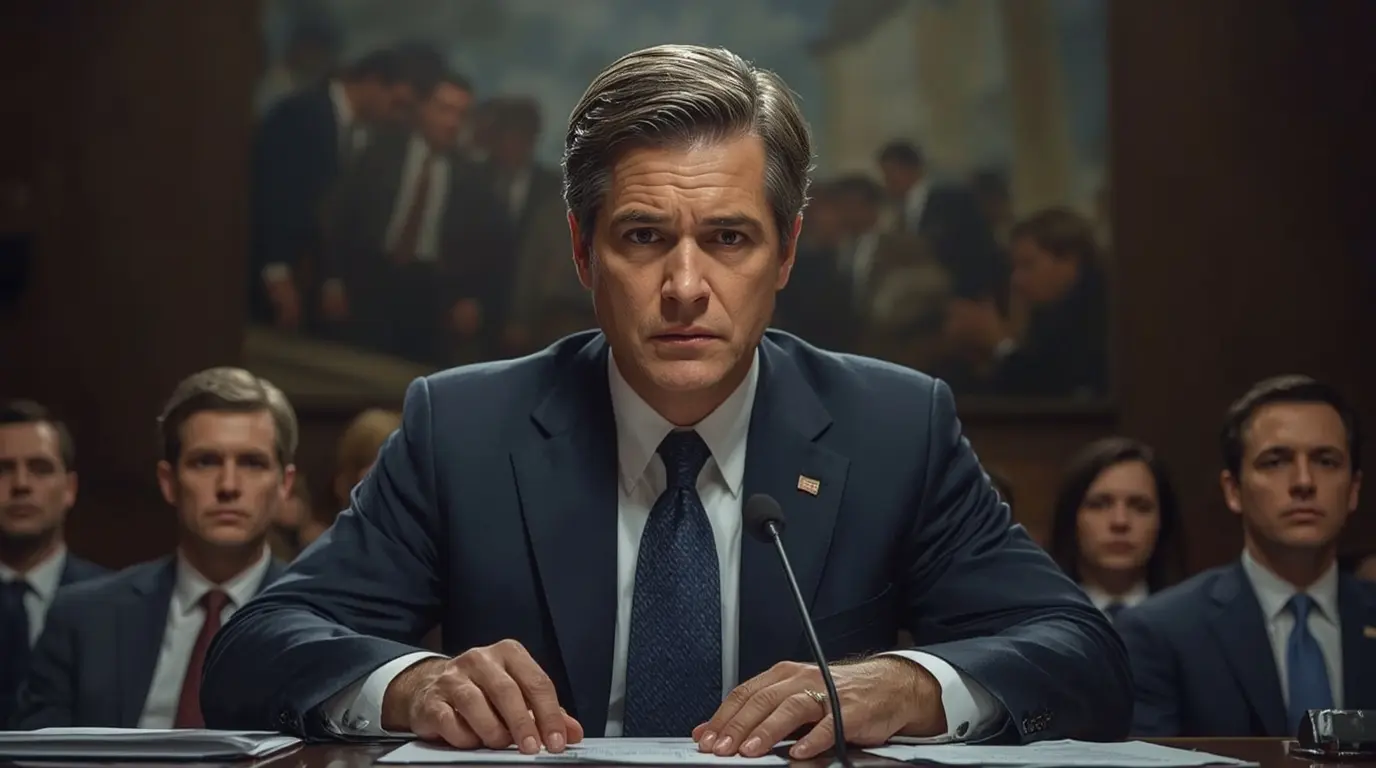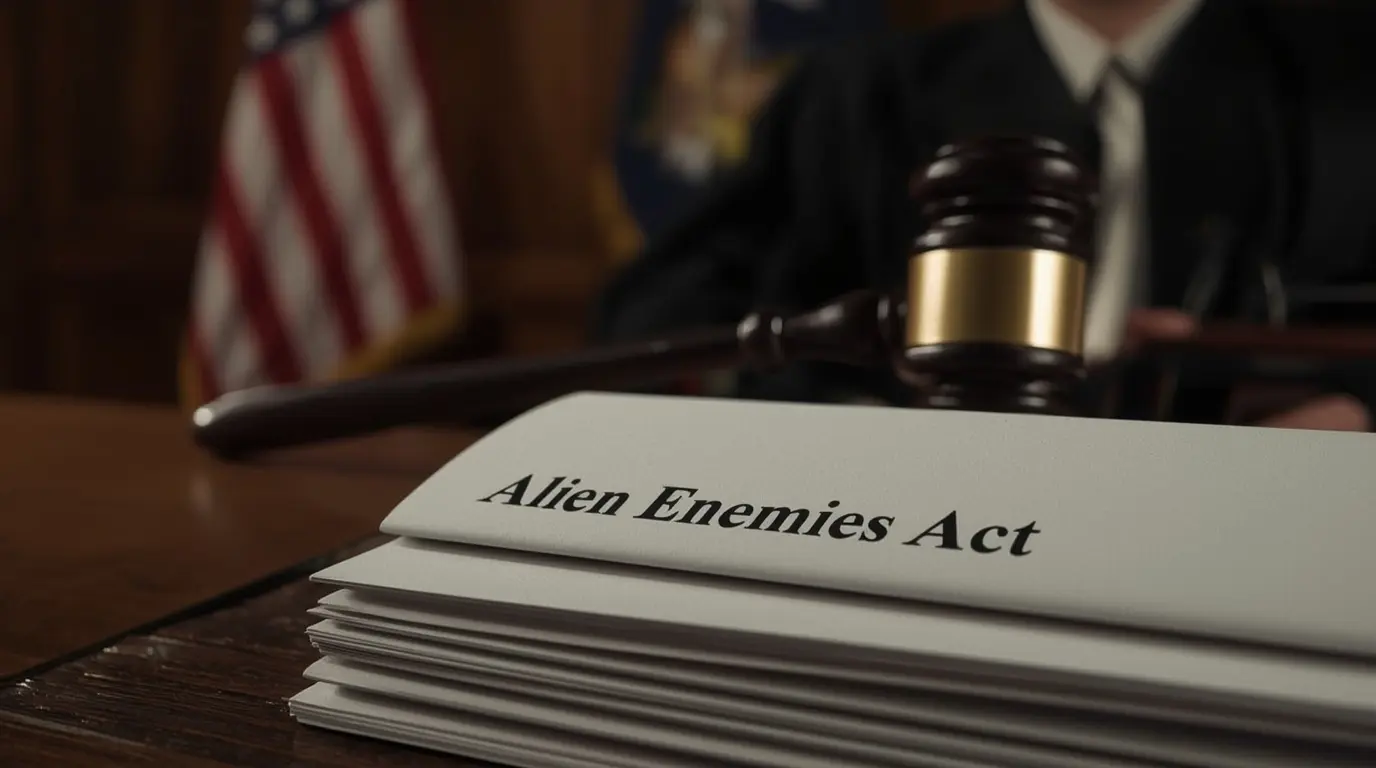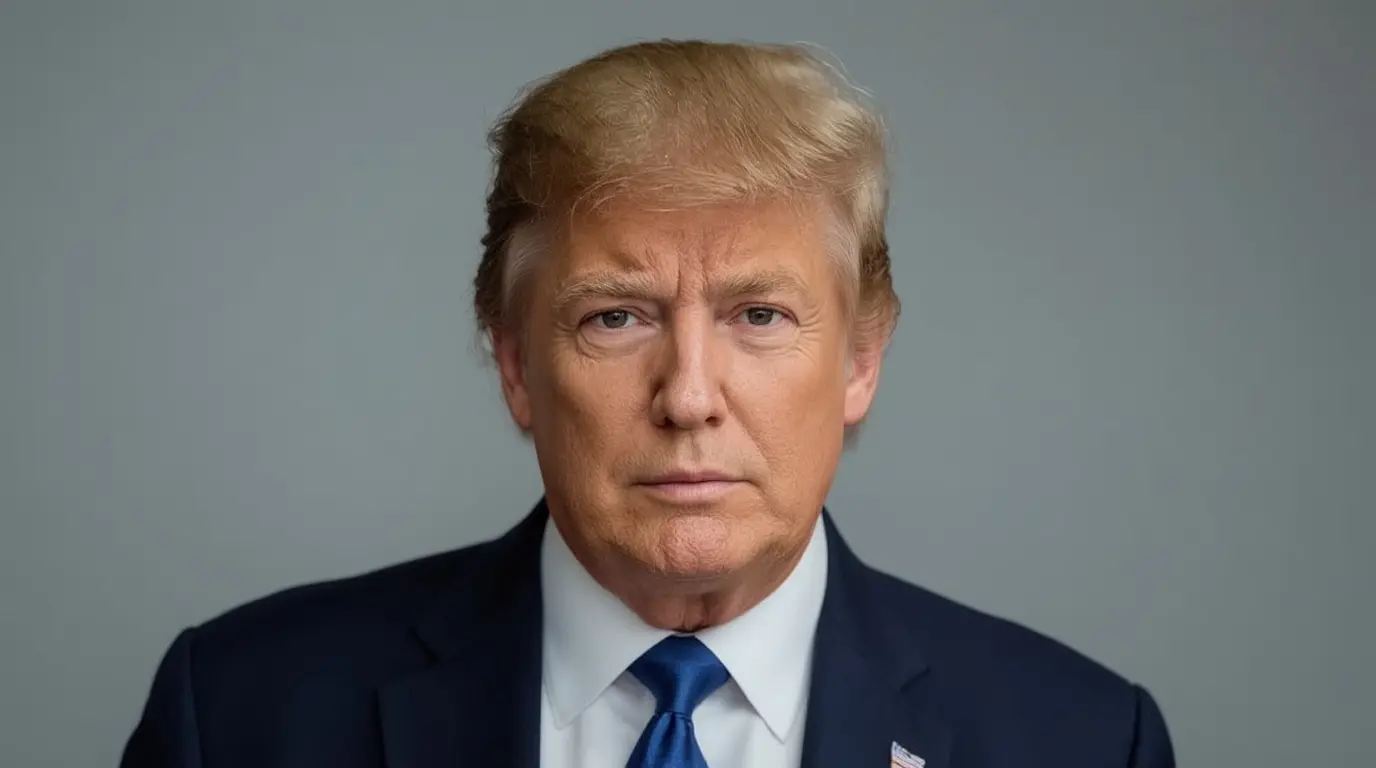Kash Patel’s Epstein Files Testimony Ignites Political Firestorm
Kash Patel, the current FBI Director, faced Congress during an exhaustive two-day session that laid bare the bitter partisan rift surrounding the Jeffrey Epstein documents. The hearings, charged with sharp clashes and theatrical stand-offs, focused on claims that Patel has shelved earlier calls for openness to shield influential figures, notably former President Donald Trump. Below, we highlight the standout moments and potential consequences from Patel’s stormy appearance on Capitol Hill.
Standing in front of a packed hearing room, Kash Patel began with an unbending defense of the Bureau’s confidentiality, arguing that releasing unredacted Epstein data would compromise ongoing human trafficking operations. Critics on both sides zeroed in on a selective glide of Patel’s earlier, publicly-stated pledge to make the Epstein records more available. Democrats charged that the Bureau’s withholding shielded politically compromised figures, while Republicans accused the minority of engineering a sideshow to undermine the Trump circle.
The tension tipped from uneasy to explosive when Kash Patel affirmed on-camera that the classified material included documents responsive to Trump-linked associates, a disclosure that triggered thunderous contempt from GOP leaders even as they stressed the need for the classified panel to review the material privately.
Lawmakers peppered Kash Patel with rapid-fire questions, challenging the timing of the Bureau’s decision to fold more documents under seal just weeks after a federal judge ordered broader transparency. Witness after witness described a mosaic of legal loopholes that appeared to protect rich and politically influential clients, and Patel faced a withering line of questioning about whether he was acting as the Bureau’s chief or as an executive protector of the Republican establishment.
At one fiery moment, a Democratic representative accused him of “rebranding the FBI as an adversary to women and trafficked persons,” prompting Republican defenders to brand the outburst a “thinly-veiled performance” and the hearing quickly descended into constant tangents and outbursts.
Elsewhere, the basis for the Bureau’s sealing of Epstein materials was laid out only cryptically. Kash Patel sketched a narrative of “ongoing national-security investigations” but declined to clarify whether those operations involve foreign intelligence, money laundering, or transaction data emanating from Epstein’s international networks of clients. The clip that was more damaging leaked later that day to conservative media: a DOJ inspector-general note that surfaced in the transcript, revealing classified tips alleging compromise of Epstein’s network by foreign diplomats.
The leak triggered a firestorm over whether the transcript was released in lockstep with selective, damaging narrative management, even the classified briefing that Senate Republicans demanded was withheld completely. The episode encapsulates an ongoing battle over Epstein-linked records that began with his 2019 arrest, pitting transparency militias against national-security watchdogs, and the newest escalation signals months or even longer of partisan-Brus with no compromise in sight.
The Tranparency vs. Reality Gap
Kash Patel held forth on national TV, promising he’d unlock every last page of docs on Epstein’s sex-trafficking ring until, well, he didn’t. During a recent hearing, Democrats pulled out video of Patel, who a few months back shot back on a podcast, “Put on your big-boy pants—let us know who the pedophiles are.” Patel also pointed out the infamous black book was “the director of the FBI’s operational responsibility.” Fast-forward, and the same Patel, now FBI head, tells the same room, “I’m not breaking the law for your peek.”
Hours before, he had still preaching transparency. Judge Richard Berman, sitting on the same case, sees the irony. His ruling says the Trump White House could easily drop the secrecy lever—no grand-jury waiver, no court papers required. Berman labeled the mixed-messaging coming from the DOJ a “clear diversion.”
Evasiveness on Trump’s Connections
A key spot of controversy during Kash Patel’s testimony was his unwillingness to tackle questions about Donald Trump’s name showing up in the Epstein files. Representative Eric Swalwell—who’s a Democrat—pressed Kash Patel on the point nine separate times. Each time Patel sidestepped reporting whether he ever notified Attorney General Pam Bondi of the mention. Instead, he kept saying certain documents with Trump’s name were already in the public domain.

This pattern of dodging raises eyebrows, with many watching the hearing believing he’s protecting Trump from having to deal with squeamish information. To add to the drama, Trump initially told reporters he was never briefed on appearing in the files. But documents later showed Bondi in fact told him in a May meeting.
The “Birthday Book” Investigation
Kash Patel was unexpectedly roped into verifying a note that’s said to be from Trump to Epstein, hidden in a “birthday book” celebrating Epstein’s 50th. This note, decorated with a scandalous sketch of a woman’s body, was labeled “fake” by Trump himself. During a grilling by Democratic Rep. Jared Moskowitz, Patel snapped back, “On what basis?” but just seconds later said, “Sure, I’ll do it.” Whether Patel meant it or was merely playing the game, the episode spotlights how the hearings can turn into staged drama while the pressure mounts on him to answer questions about possible forgery.
Denial of Trafficking to Other Men
Kash Patel insisted that “no credible information” links Epstein to handing girls off to other men, a statement that raised eyebrows on both sides of the aisle. He said his view comes from the old case files of the mid-2000s and the gaps in Epstein’s sweetheart deal. Republican Rep. Thomas Massie shot back, reminding him that survivors have named at least 20 men in their trafficking claims. Patel shot that down, claiming it had been ruled “incredible” by prosecutors of both parties, across multiple administrations.
Dem Strategy and the Subpoena Scramble
Democrats are pushing the Epstein angle to paint Kash Patel as a Trump loyalist more concerned with saving the former president than helping crime victims. Jamie Raskin, Judiciary Committee’s top Democrat, said Patel was setting up a “political FBI” to hide a giant “international sex trafficking” scheme. To back that claim, Democrats forced votes to subpoena the top four banks—JPMorgan, Bank of America, Deutsche Bank, and Bank of New York—for records of $1.5 billion in shady Epstein-related deals. The votes lost by a hair, with only GOP Rep. Thomas Massie voting “yes.” Still, the close tally shows rising bipartisan pressure for Kash Patel to lift the curtain of secrecy.
GOP Pushback and Fractures
A number of Republicans backed Patel, but a telling minority sided with Democrats in asking for more. Senator John Kennedy of Louisiana told Patel flat-out, “This issue’s not going away” and insisted he must “do more” to calm “understandable curiosity.” Meanwhile Massie’s move to bypass normal committees and force a House vote on the Epstein files is only a couple of signatures away, putting more tension on GOP leadership. The splits hint that the Trump administration could soon face a political headache if Patel stays reticent.
Personal Attacks and Combative Exchanges
Tensions bubbled in the hearings whenever Kash Patel faced off with Democrats. Rep. Swalwell blasted the administration’s legal argument as “bullsht,” and Patel shot back, “I’ll use your word and call bullsht on your whole career—because you’ve betrayed the American people.” Patel also refused to stay away from looking into lawmakers he once branded “government gangsters.” This fight-filled rhetoric fits the Trumpian mold, but it also risks pushing away the moderates you’d normally want in your corner.
The Future of the Epstein Files
Kash Patel keeps claiming the FBI has shared everything it can, but tons of legal minds, and even judges, see it differently. Judge Berman has stressed that the DOJ can hand over almost all of the Epstein documents without waiting for a court to sign off.
With Rep. Massie’s discharge petition building steam and Democrats vowing not to drop the issue, Patel might have to rethink his “all records are out” story. The final dope on these files could seal his legacy as FBI director and, more importantly, could either verify or blow a big hole in the Trump administration’s transparency pitch.
Conclusion: A Test of Credibility and Accountability
Kash Patel’s testimony highlights the clash between political loyalty and the duty to the institution. Once seen as a champion of the public’s right to know, he is now the restrained choice for FBI director. That shift raises doubts about whether he can keep personal biases out of the Bureau’s work. As mounting public and political pressure press him to deliver answers, Patel finds himself weighing ironbound legal limits against growing calls for openness.
The Epstein files have become a marker in the larger conversation about power, justice, and sunlight in the American system of governance. The way Kash Patel tackles this crisis will not only shape the Bureau’s future fairness, but will also define the reputation he leaves behind.
For more news updates, visit our home page.




